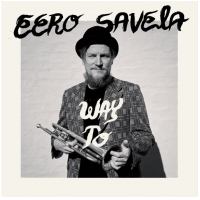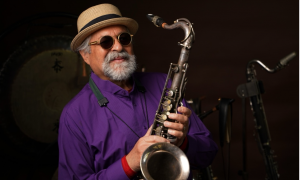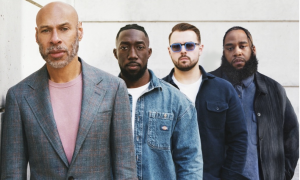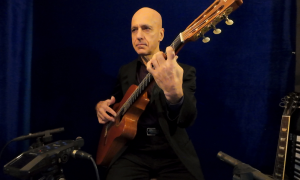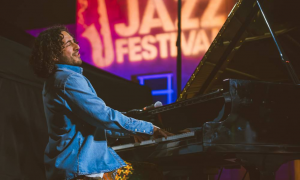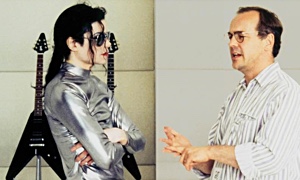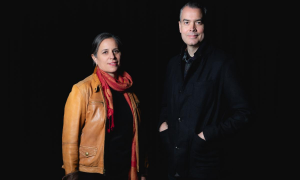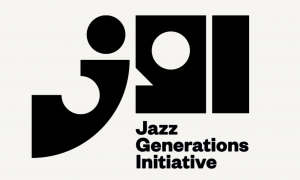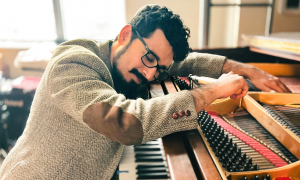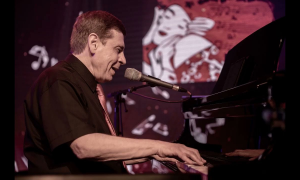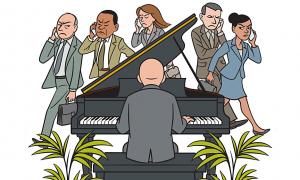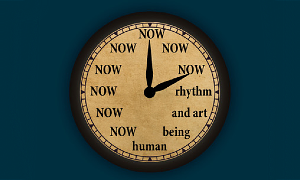David J. Hahn is a music director and pianist in New York City. He toured as the conductor of Leonard Bernstein's Wonderful Town (2007 revival, North American tour) and has music directed regionally throughout the United States. He has music directed new works and readings at Playwrights Horizons, New Dramatists and the Laurie Beechman Theater and made his music directing debut at Town Hall in 2010.
Dave worked as the Assistant Music Director at the New York Stage and Film reading of Michael Mayer's “On a Clear Day You Can See Forever." He teaches, accompanies and music directs at New York University and subs on Broadway.
In this interview he speaks about the kind of relationship music directors have with their cast, their band and their director. He also gives insights on how to prepare for rehearsals, and how to conduct from the piano.
What does it take for someone to be a music director?
First off, music directors need to be able to clearly communicate, and to work with a lot of different types of people. The music director is the point person who translates all of the different ways people talk about music.
You also have to be an incredible musician, with a skill set that is very advanced in music, conducting and performing.
A good understanding of management skills is also important because different musicians are motivated by different things, and you have to talk to them with those motivations in mind. Some musicians play because they want recognition, or money, or they do it for the art. Being in a middle management position, you need to communicate between the directors and the producers, and the actors and musicians.
How does a music director prepare before rehearsals start?
I always listen to as many recordings of the productions beforehand, because you have to learn the book and get the show under your fingers. It's also good to sing through the show even if you're not much of a singer so you don't run into surprises in rehearsal.
Also, there are often meetings with the director and the choreographer to see what their vision is for the show, and with the stage manager to decide what the schedule is going to be for teaching the music.
What is the relationship like between a director and a music director?
The director has to have the vision for the project, and everybody else has to go with that. I like to follow a director's lead on everything, follow their vision.
For example, I prefer when the director is in the room when I teach the music, so they can have input on it. Sometimes you end up in situations where you may feel that the director is overstepping their bounds, but I haven't run in that situations very often. I usually love the directors I work with.
What do you do during tech week if someone has a difficult personality or isn't playing the part well?
One lucky thing I've found is that the higher up you go in the industry, the less and less you have to deal with hard personalities. The most successful music directors and musicians that I've met are also really lovely, genuine people.
But if you do have the misfortune of working with a difficult personality, there are three steps that I suggest. If a musician isn't performing well, the first thing to do is to talk to them in private and tell them clearly what the problem is and what you want them to do. If it doesn't work, the next step is to address the problem at a group rehearsal, so they're accountable in front of the whole group. If that still doesn't work, you have to fire them, there's no way around that.
I think it's a delicate situation in a pit when you go on tour and you need people to stay on your side. Tech week is difficult, you're bombarded on all sides. When you hit it, you have to bring up all your flexibility, work well under stress, work well with others and keep your cool.
Is a music director better of as a standing conductor or as a playing conductor?
I've done both and I prefer to be a playing conductor, but some people feel differently.
When I play it's easier to get the respect from the band, and to get a different sense of camaraderie than I do as a standing conductor. Or maybe it's just that I like playing piano!
Conducting from the piano is hard at first. The secret is breathing. A band that breathes together comes in together. The biggest mistake is to assume that piano conducting is something that comes naturally. When you're just playing with the cast you have to practice as if there's a band there, even if nobody is looking at you. The biggest complaint from bands is that music directors don't have the coordination to put their head nod and the beat together.
One thing to consider—when you have long runs, musicians require less and less. They just need cut offs, tempo changes within a number; things that you can do from the piano without micro managing.
What do you know now that you wish you knew when you first started as a music director?
I was 25 on my first big gig, the national tour of Wonderful Town. I was the youngest member of the band, and the conductor, and I was still learning how best to lead an ensemble. Music directing can be tough because there isn't much mentorship in the career path.
On that tour I sometimes tried to create respect by trying to be tough about things—which didn't help anything. People give you the most respect from being confident and from knowing what you're doing. You can't create artificial respect. As I've gotten older, I don't try to create an atmosphere of discipline in a rehearsal. I learned that you need to be a pro, and treat others as pros.
What makes the difference between a good and a bad music director?
How easy the music director is to work with. Whether or not they're successful is about how people feel about the experience afterwards. When the project is done and people are moving on to the next project, whether or not people want to work with the music director depends on if they like him or her, and if they trust their music direction.
What do you love about being a music director?
It's the best job in the world. I show up every day, I get to play music that I love, and I'm part of a bigger community, a bigger tradition. I love playing piano and I love people. I feel like the luckiest guy in the world.
Dave worked as the Assistant Music Director at the New York Stage and Film reading of Michael Mayer's “On a Clear Day You Can See Forever." He teaches, accompanies and music directs at New York University and subs on Broadway.
In this interview he speaks about the kind of relationship music directors have with their cast, their band and their director. He also gives insights on how to prepare for rehearsals, and how to conduct from the piano.
What does it take for someone to be a music director?
First off, music directors need to be able to clearly communicate, and to work with a lot of different types of people. The music director is the point person who translates all of the different ways people talk about music.
You also have to be an incredible musician, with a skill set that is very advanced in music, conducting and performing.
A good understanding of management skills is also important because different musicians are motivated by different things, and you have to talk to them with those motivations in mind. Some musicians play because they want recognition, or money, or they do it for the art. Being in a middle management position, you need to communicate between the directors and the producers, and the actors and musicians.
How does a music director prepare before rehearsals start?
I always listen to as many recordings of the productions beforehand, because you have to learn the book and get the show under your fingers. It's also good to sing through the show even if you're not much of a singer so you don't run into surprises in rehearsal.
Also, there are often meetings with the director and the choreographer to see what their vision is for the show, and with the stage manager to decide what the schedule is going to be for teaching the music.
What is the relationship like between a director and a music director?
The director has to have the vision for the project, and everybody else has to go with that. I like to follow a director's lead on everything, follow their vision.
For example, I prefer when the director is in the room when I teach the music, so they can have input on it. Sometimes you end up in situations where you may feel that the director is overstepping their bounds, but I haven't run in that situations very often. I usually love the directors I work with.
What do you do during tech week if someone has a difficult personality or isn't playing the part well?
One lucky thing I've found is that the higher up you go in the industry, the less and less you have to deal with hard personalities. The most successful music directors and musicians that I've met are also really lovely, genuine people.
But if you do have the misfortune of working with a difficult personality, there are three steps that I suggest. If a musician isn't performing well, the first thing to do is to talk to them in private and tell them clearly what the problem is and what you want them to do. If it doesn't work, the next step is to address the problem at a group rehearsal, so they're accountable in front of the whole group. If that still doesn't work, you have to fire them, there's no way around that.
I think it's a delicate situation in a pit when you go on tour and you need people to stay on your side. Tech week is difficult, you're bombarded on all sides. When you hit it, you have to bring up all your flexibility, work well under stress, work well with others and keep your cool.
Is a music director better of as a standing conductor or as a playing conductor?
I've done both and I prefer to be a playing conductor, but some people feel differently.
When I play it's easier to get the respect from the band, and to get a different sense of camaraderie than I do as a standing conductor. Or maybe it's just that I like playing piano!
Conducting from the piano is hard at first. The secret is breathing. A band that breathes together comes in together. The biggest mistake is to assume that piano conducting is something that comes naturally. When you're just playing with the cast you have to practice as if there's a band there, even if nobody is looking at you. The biggest complaint from bands is that music directors don't have the coordination to put their head nod and the beat together.
One thing to consider—when you have long runs, musicians require less and less. They just need cut offs, tempo changes within a number; things that you can do from the piano without micro managing.
What do you know now that you wish you knew when you first started as a music director?
I was 25 on my first big gig, the national tour of Wonderful Town. I was the youngest member of the band, and the conductor, and I was still learning how best to lead an ensemble. Music directing can be tough because there isn't much mentorship in the career path.
On that tour I sometimes tried to create respect by trying to be tough about things—which didn't help anything. People give you the most respect from being confident and from knowing what you're doing. You can't create artificial respect. As I've gotten older, I don't try to create an atmosphere of discipline in a rehearsal. I learned that you need to be a pro, and treat others as pros.
What makes the difference between a good and a bad music director?
How easy the music director is to work with. Whether or not they're successful is about how people feel about the experience afterwards. When the project is done and people are moving on to the next project, whether or not people want to work with the music director depends on if they like him or her, and if they trust their music direction.
What do you love about being a music director?
It's the best job in the world. I show up every day, I get to play music that I love, and I'm part of a bigger community, a bigger tradition. I love playing piano and I love people. I feel like the luckiest guy in the world.






